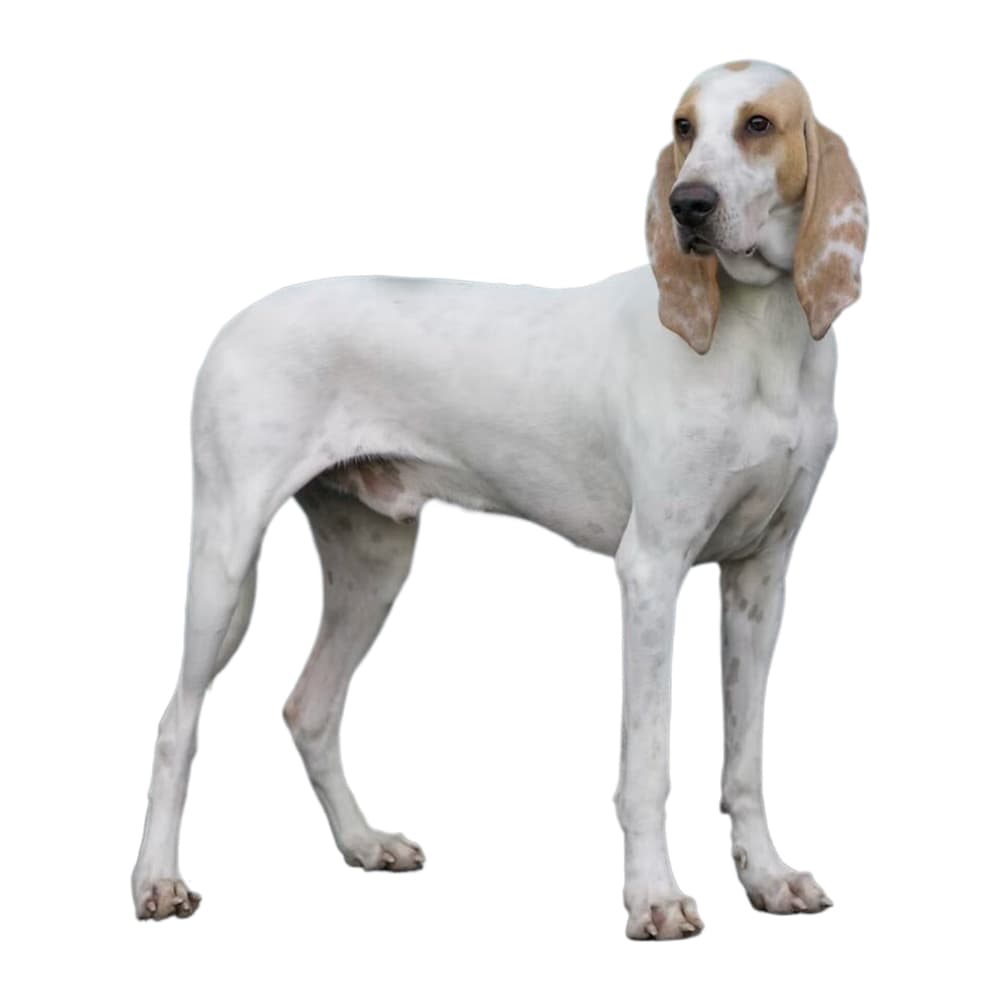Discover your dog's connection to this breed and 200+ others


Discover your dog's connection to this breed and 200+ others



The Porcelaine is one of the oldest scent hound breeds originating from France, with a history that dates back to the late 17th century. Its name is derived from its shining white coat that is reminiscent of a porcelain doll. These dogs were initially used for hunting game, such as rabbits and hares, due to their exceptional scenting abilities. Although the breed had a brush with extinction during the French Revolution, dedicated breeders managed to revive the breed in the late 19th century. Despite its long history, the Porcelaine is not well-known outside of its native France. The breed was recognized by the United Kennel Club in the U.S. in 1996.
Porcelaines are known to be generally healthy dogs, but as a larger breed they are at risk for developing orthopedic problems, such as hip and elbow dysplasia. Genetic testing is recommended, including for the following specific conditions: hyperuricosoria, degenerative myelopathy, and progressive rod-cone degeneration.
Porcelaines are known for their friendly, gentle, and calm disposition. They're good with children and tend to get along well with other dogs, especially when socialized early. They're intelligent, responsive, and have a strong drive to please, making them relatively easy to train. Despite their friendly nature, they can be quite persistent and determined when on the scent trail, reflecting their hound heritage.
While generally quiet indoors, Porcelaines can be quite vocal when on the scent trail. Therefore, they might not be the best fit for apartment living or areas with strict noise regulations. They require a good amount of exercise due to their working background.
The Porcelaine's extraordinary sense of smell is on par with breeds like the Bloodhound.
This breed got its name from its shiny white coat, which is said to glow like porcelain in the sun.
The Porcelaine is rare outside of France, even though it is one of the country's oldest breeds.
https://vgl.ucdavis.edu/breed/porcelaine
https://www.ukcdogs.com/Porcelaine
https://www.akc.org/dog-breeds/porcelaine/
https://www.fci.be/en/nomenclature/PORCELAINE-30.html
Recommended by top vets with decades of experience
21 breeds
64 genetic health markers
50 genetic trait markers
